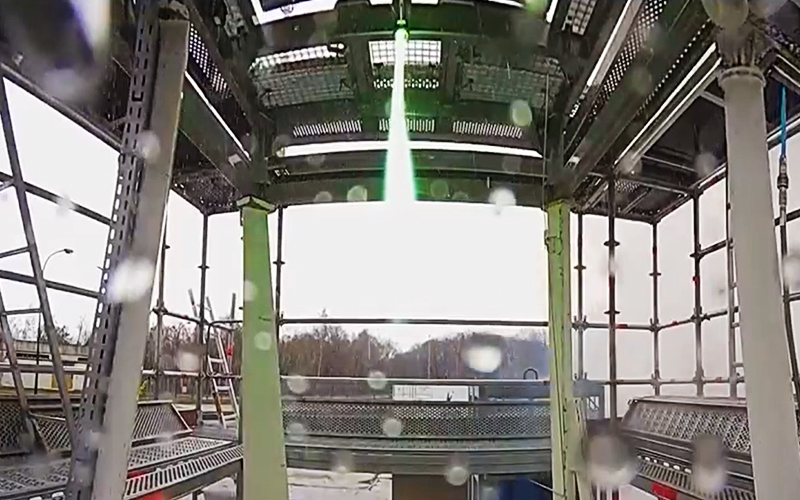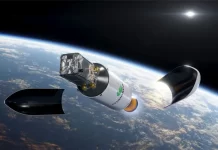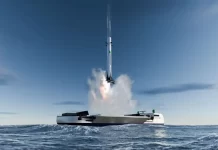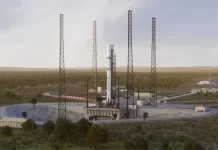
ArianeGroup subsidiary MaiaSpace has announced the completion of the first hot fire test of the engine that will power the company’s Colibri kick stage. The kick stage will be encased in a three-meter-tall fairing and will allow the launch startup to offer greater flexibility to its customers.
To date, ArianeGroup has injected close to €40 million into MaiaSpace, making it one of the better-funded launch startups in Europe despite only being founded in early 2022. With this first kick-stage engine test, which was completed at the company’s Vernon facility, the company looks to prove equally adept at the rapid development of key technology for Maia, the company’s three-stage microlauncher.
The successful kick-stage engine test is, however, not the company’s first development milestone. In addition to the successful test firing of a Prometheus engine by ArianeGroup, the engine that will be used aboard the first and second stages of Maia, the launch startup has also successfully built and cryogenically tested a full-scale prototype of the rocket’s second stage.
Testing of key technologies of the rocket’s first stage, including additional firings of its methalox Prometheus engines, is expected to occur in 2024 with the initial hop tests of Themis, a reusable booster demonstrator being developed by ArianeGroup. The demonstrator will serve as the basis for the development of the first stage of Maia.
In a LinkedIn post announcing the successful test firing of the Colibri kick-stage engine, MaiaSpace hinted that it would be conducting engine, stage, and structural testing in 2024.
Maia’s maiden flight is currently slated for late 2025. The first recovery attempt of a Maia first stage is then expected to follow in 2026. The rocket is designed to be capable of delivering 500 kilograms to SSO when it is being recovered and 1,500 kilograms when it is launched in an expendable configuration.




